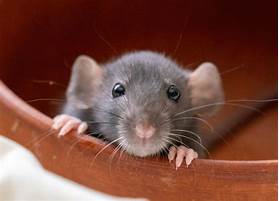How Long Do Pet Rats Usually Live?
Pet rats are becoming increasingly popular as companions due to their intelligence, playful nature, and relatively low maintenance. However, like any other pet, it's essential to understand their lifespan and how to provide them with the best possible care throughout their lives.

Average Lifespan of Pet Rats
The average lifespan of a pet rat is typically between two and three years. This can vary depending on the rat's breed, genetics, and overall health. Some rats may live for as little as one year, while others may live up to five years or more with proper care and attention.
Factors Affecting a Pet Rat's Lifespan
Several factors can impact the lifespan of a pet rat, including:
1. Diet and Nutrition:
A balanced diet and adequate nutrition are crucial for a rat's health and longevity. Ensure your rat has access to a high-quality diet rich in protein, carbohydrates, fats, vitamins, and minerals.
2. Environment and Housing:
Rats need a clean and spacious living environment to thrive. Provide your rat with a large cage or enclosure that allows for plenty of movement and exercise. Maintain proper hygiene by regularly cleaning the cage and providing fresh bedding.
3. Exercise and Activity:
Rats are active and playful creatures that require regular exercise. Encourage your rat to explore and play by providing them with toys and climbing structures. Physical activity helps keep them mentally and physically stimulated, contributing to their overall well-being.
4. Veterinary Care:
Regular veterinary checkups are essential for detecting and treating any health issues early on. Taking your rat for annual exams and vaccinations can help prevent or manage diseases that could shorten their lifespan.
5. Social Interaction:
Rats are social animals that thrive on interaction with their human companions and other rats. Providing your rat with regular attention, playtime, and opportunities to socialize can help keep them happy and healthy.
Conclusion
The lifespan of a pet rat is influenced by various factors, including diet, housing, exercise, veterinary care, and social interaction. By providing your rat with a balanced diet, clean and spacious living environment, plenty of exercise and mental stimulation, regular veterinary checkups, and opportunities for socialization, you can help ensure they live a long and healthy life.
Declaration: All article resources on this website, unless otherwise specified or labeled, are collected from online resources. If the content on this website infringes on the legitimate rights and interests of the original author, you can contact this website to delete it.





